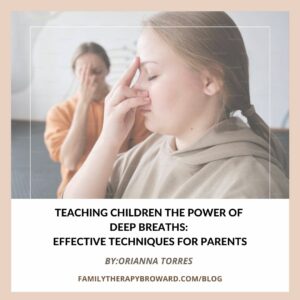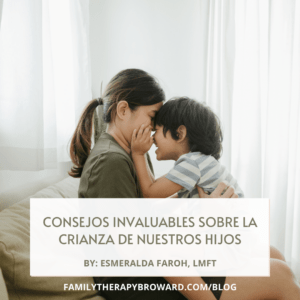Typically, if your child is experiencing emotional outbursts or difficulty calming down, facing trouble adjusting/transitioning, or being defiant, child therapy is beneficial.
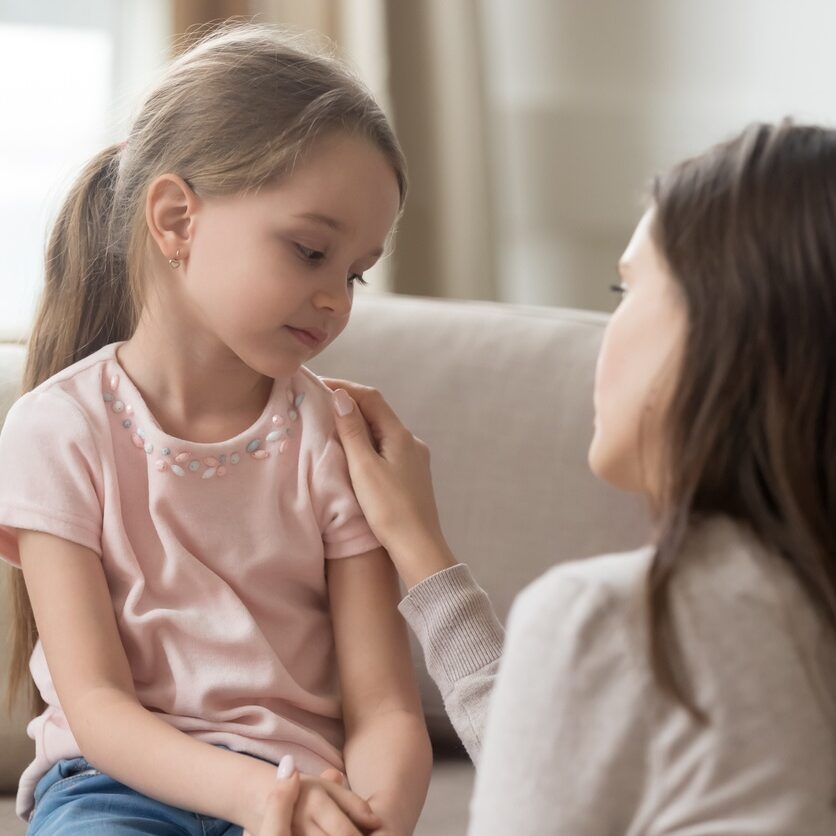
This kind of therapy is performed by a mental health therapist or psychologist.
If your child is experiencing developmental delays or engaging in repetitive behavioral outbursts, ABA, Applied Behavioral Analysis, commonly known as ABA, maybe a beneficial form or treatment for them. ABA is most commonly employed with those with Autism Spectrum Disorder and performed by a Board Certified Behavioral Analyst (BCBA).
If your child is experiencing sensory issues, such as not being able to tolerate certain textures, sounds or sights, they may benefit from working with an Occupational therapist. Some common sensory issues include, children feeling like their clothes are scratchy or uncomfortable, lights seeming too bright, sounds seeming too loud, soft touches feeling too hard or experiencing food textures make them gag.
It is always helpful to consult your child’s pediatrician and ask for their input and suggestions.
Many children and teens have problems that affect how they feel, act, or learn. Going to child and adolescent therapy helps them cope better, feel better, and do better.
Behavior therapy is effective treatment for behavior or conduct problems that can improve a child's behavior, self-control, and self-esteem.
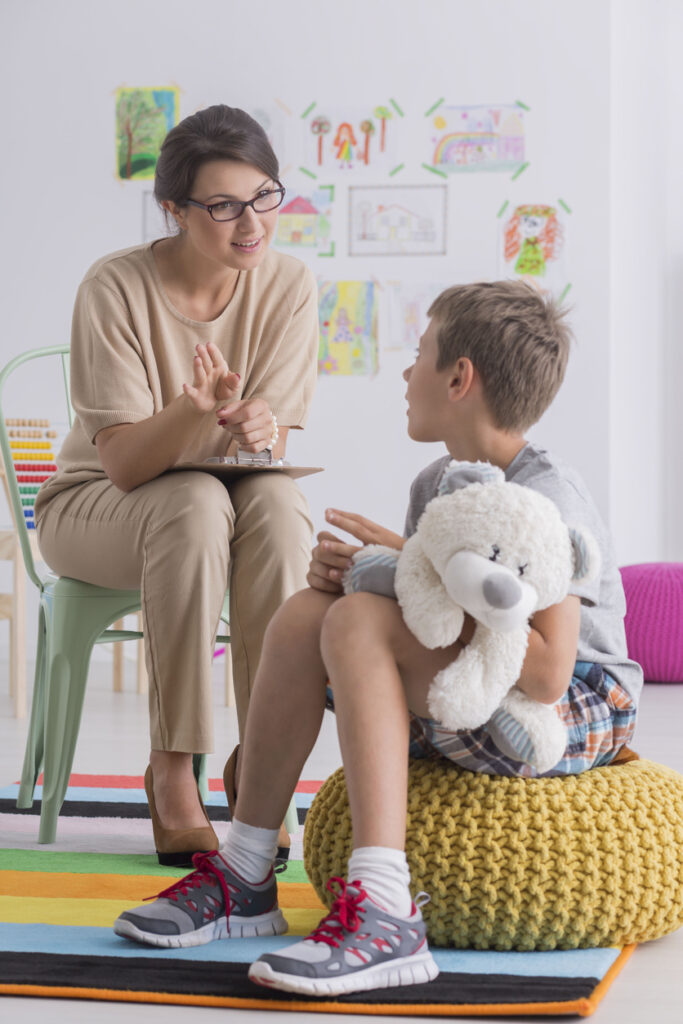 When to get child counseling?
When to get child counseling?
When a child is having trouble in school or at home, it may be time to get help from a professional. In some cases, this can mean getting counseling for the child and family. This is typically done at a mental health office, or in some cases, the family doctor.
If you are concerned about your child's behavioral problems, it is important to seek out professional help. The earlier the better when working with a professional child therapist.
How to know if your child needs therapy?
If your child is experiencing issues that interfere with his/her daily functioning, your child could likely benefit from mental health therapy.
Here are some examples that could be a sign your child would benefit from working with a therapist:
- Difficulty sleeping or staying asleep
- Change is eating habits
- Frequent crying spells
- Excessive worrying
- Engaging in destructive behavior
- Regressing in behavior
- Drop-in grades
- Frequently speaks about death
- Lost interest in things that they typically enjoy
- Isolating from others
What are some things that might be happening to my kid?
If your child is experiencing developmental delays or engaging in repetitive behavioral outbursts, ABA, Applied Behavioral Analysis, commonly known as ABA, may be a beneficial form or treatment for them. ABA is most commonly employed with those with Autism Spectrum Disorder and performed by a Board Certified Behavioral Analyst (BCBA).
If your child is experiencing sensory issues, such as not being able to tolerate certain textures, sounds or sights, they may benefit from working with an Occupational therapist. Some common sensory issues include, children feeling like their clothes are scratchy or uncomfortable, lights seeming too bright, sounds seeming too loud, soft touches feeling too hard or experiencing food textures make them gag.
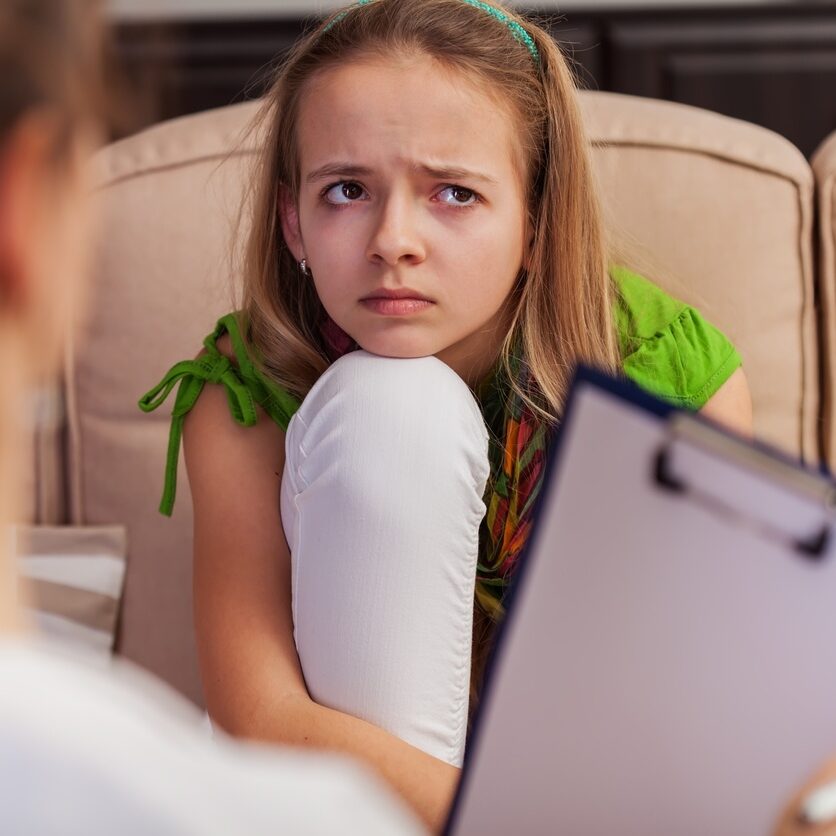
What are the benefits of early intervention?
Early intervention is important because a habit, behavior, thought process that is new, is easier to break. This is because they have not grown as dependent or comfortable with the behavior or thought. Children often do what feels good and meets their needs, even if it isn’t rational, relational, or respectful. They do this because they lack organizational, problem-solving, and reasoning skills due to the developmental stage of their frontal lobe. The earlier that your child receives help, the sooner they can begin to learn more healthy ways to organize their thoughts, manage their feelings, and engage in thoughtful behaviors.
What is the best therapy for a child?
As each child is different and unique, they each will respond to therapies differently. If your child is experiencing emotional outbursts or difficulty calming down, facing trouble adjusting/transitioning, or being defiant, child therapy is beneficial. This is performed by a mental health therapist or psychologist.

Some common therapeutic techniques and approaches include:
- Cognitive Behavioral Therapy (CBT)
- Acceptance and Commitment Therapy (ACT)
- Play Therapy
- Mindfulness Training
- Family Therapy
- Parent-Child therapy
- Motivational Interviewing (MI)
What are the different types of child therapy?
- Cognitive Behavioral Therapy (CBT): The goal for CBT is to show children how thoughts cause feelings, which then affect behavior. During CBT, a child will learn about their own thought patterns and practice reworking them to be more soothing, yet still true to themselves. Research shows that CBT can be effective in treating a variety of conditions or disorders. Specialized forms of CBT have also been developed to help children who have been exposed to or have experienced trauma.
- Acceptance and Commitment Therapy (ACT): Helps a child understand and receive their personal emotions. ACT helps children and teens use the comprehension of their emotions to commit to moving onward in a positive/healthy way.
- Play Therapy: Typically used with younger children and commonly involves art, puppets, games, or play-acting. Younger children often find it easier to share their emotions and experiences symbolically, and in an interactive way, rather than using their words to describe their thoughts and feelings.
- Mindfulness Training: Meditation techniques that help one attune to how they are feeling in the present moment without assigning judgments to their thoughts or feelings.
- Family Therapy: Focuses the child's relationships to parents and other family members. directed at the family as a whole instead of just the individual child. Family therapy helps with issues that relate to their entire family system.
- Parent-Child Therapy: focuses on the parent and child attachment to one another. The goal is to improve their understanding for one another as well as their bond/relationship. There are several brand names for this form of therapy, including “Theraplay” and “Parent-Child Interaction Therapy”.
- Motivational Interviewing (MI): A therapeutic technique where a therapist helps an individual discover inner motivational factors that help promote positive changes in behavior. MI is particularly helpful with children/adolescents who are resistant or have mixed feelings about behavior change.
How can you get child counseling for your child?
If you feel that your child would benefit from therapy, it may be helpful to speak with your child’s pediatrician or school guidance counselor for recommendations in your area.
Please feel free to contact us at the Family Therapy Group of Weston to learn more and schedule an appointment with one of our qualified, experienced, and compassionate therapists!
Call us today! ( 954) 769-1285 or feel free to email us for more information at info@familytherapybroward.com.
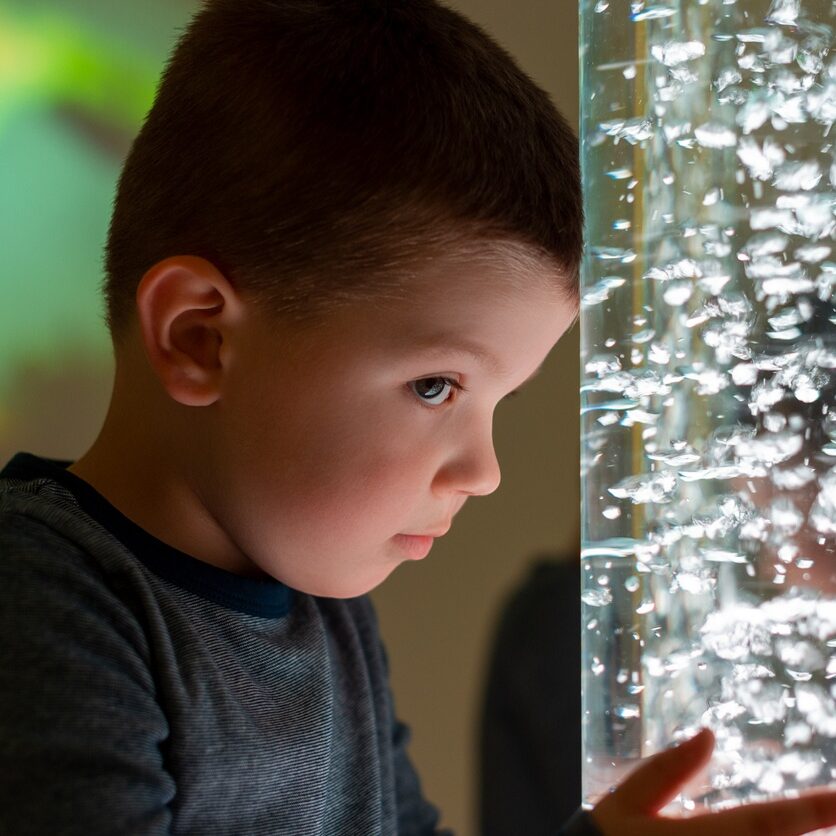
How can you find a qualified therapist for your child?
Some good resources to use when looking for a qualified therapist would be your primary care physician, your insurance company, and psychologytoday.com.
Each of these resources should be able to help you find a therapist who is licensed or registered in your area with the department of health and qualified to provide therapy to your child.
Please feel free to contact us at the Family Therapy Group of Weston to learn more and schedule an appointment with one of our qualified, experienced, and compassionate therapists!
Call us today! ( 954) 769-1285 or feel free to email us for more information at info@familytherapybroward.com.
Read Our Blog Posts About Child Therapy:
Teaching Children the Power of Deep Breaths: Effective Techniques for Parents
By: Orianna Torres In today’s fast-paced world, stress and anxiety are not limited to adults. Children also experience various challenges that can cause emotional turmoil. Teaching…
Read MoreSUPERMOM-Helpful tips for moms with kids having special needs and disabilities
By: Lezlie Brezin Sleepless nights, changing diapers, late-night feedings, and mounds of laundry are only a handful of the challenges in the world of a mommy.…
Read MoreConsejos Invaluables sobre la crianza de nuestros hijos
By: Esmeralda Faroh Uno de los compromisos más grandes que adquirimos en la vida como seres humanos es cuando decidimos traer un niño(a) al mundo.…
Read MoreOur highly experienced therapists are able to evaluate situations and figure out if this is just a phase that your child is going through or if there is a real more pressing issue that needs to be addressed.


